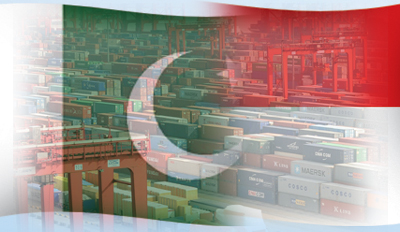Pakistan and Indonesia’s bilateral trade reached $4.7 billion in Fiscal Year 2024-25, up from $3.36 billion in 2023, reflecting the growing economic ties between the two countries. Both nations are currently negotiating a Free Trade Agreement (FTA) aimed at expanding market access and deepening economic cooperation.
Indonesia, Southeast Asia’s largest economy, is one of Pakistan’s top trading partners. Pakistan exports processed foods, pharmaceuticals, IT services, halal meat, textiles, seafood, and sports goods to Indonesia. In return, Indonesia exports palm oil, consumer electronics, auto parts, coal, rubber, tea, spices, and nickel-related products to Pakistan, with palm oil being a major import.
The two countries signed a Preferential Trade Agreement (PTA) in 2012, which became operational in 2013, helping to improve market access and offering tariff concessions on numerous products.
The ongoing FTA discussions are expected to further enhance trade relations by providing greater market access and cooperation in sectors such as electric vehicle battery production, leveraging Indonesia’s rich nickel reserves.
In addition to trade, both countries are looking to broaden their cooperation in various sectors, including education, healthcare, IT, tourism, energy, and defense. Indonesia is also seen as a potential gateway for Pakistan to access the ASEAN market, which boasts over 600 million people. This opens up significant opportunities for Pakistan to enhance its economic engagement in Southeast Asia.
Pakistan’s investment in Indonesia has seen substantial growth, particularly in services, construction, and trade-related sectors. The President of the Pakistan Federation Chamber of Commerce and Industry (FPCCI) emphasized that Indonesia could play a pivotal role in connecting Pakistan to the ASEAN market and promoting trade diversification.




